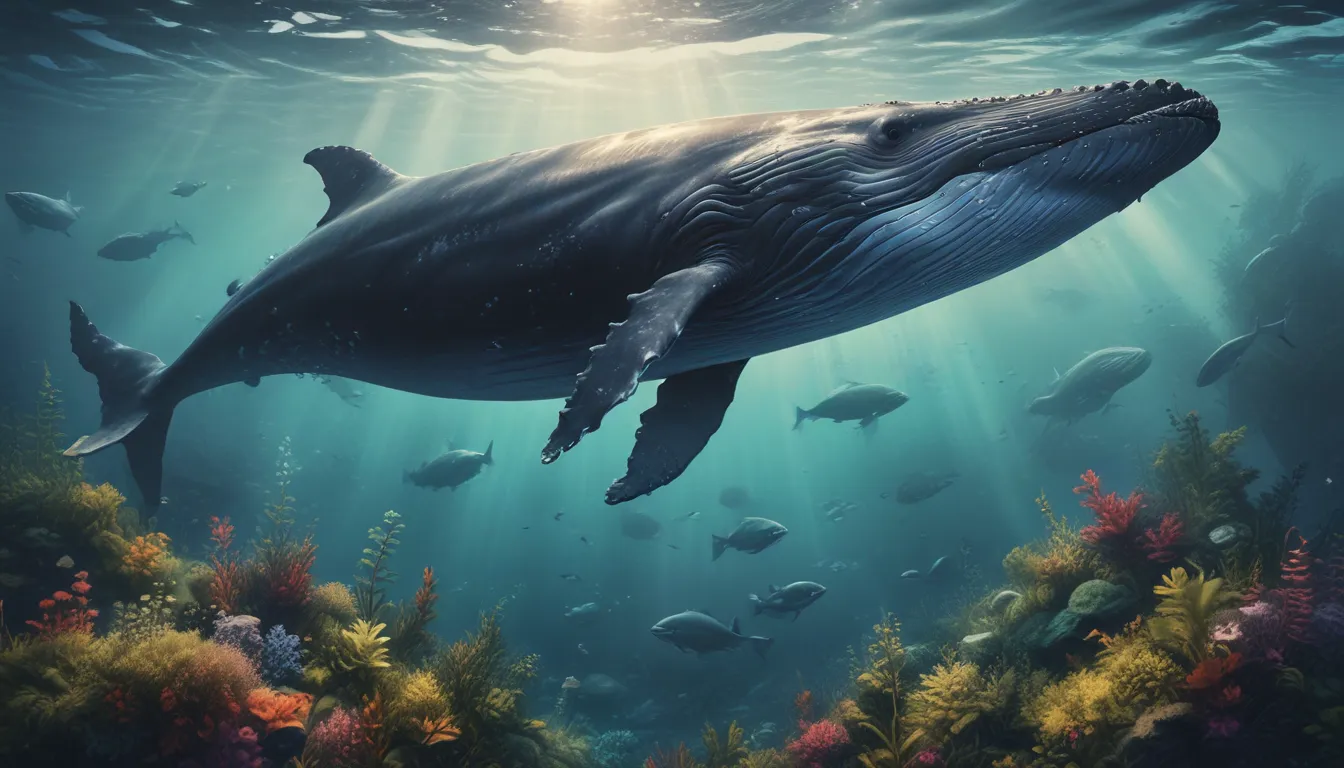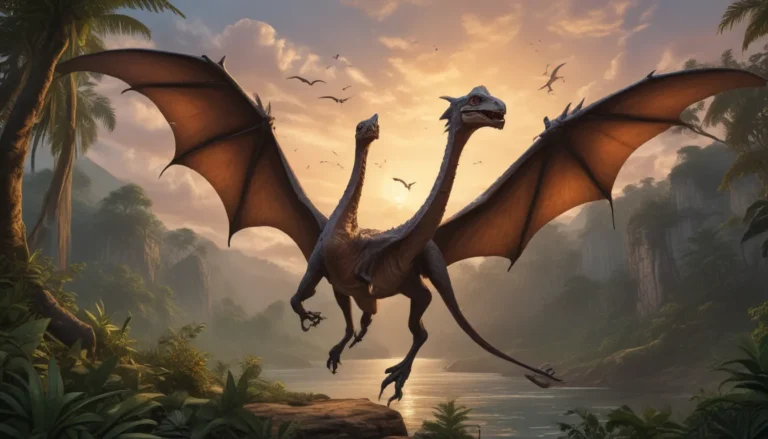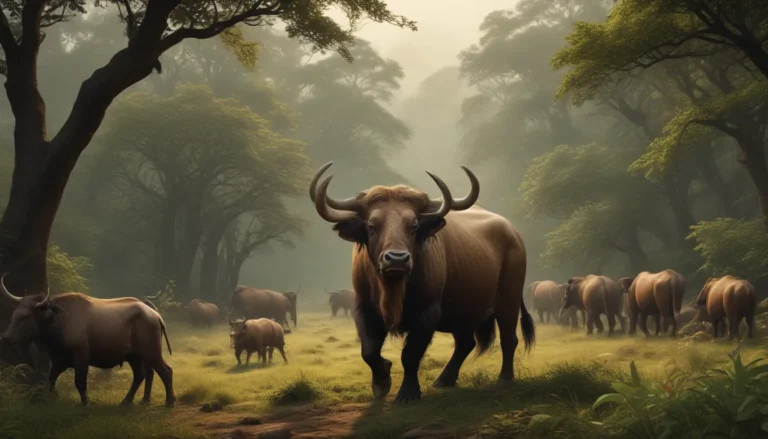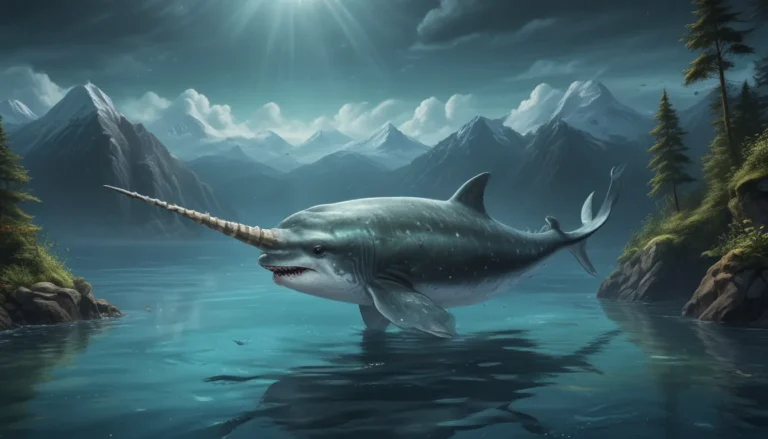The pictures we use in our articles might not show exactly what the words say. We choose these pictures to make you interested in reading more. The pictures work together with the words but don’t take their place. The words still tell you the important facts.
Whales, the majestic creatures of the deep, have long captivated the human imagination with their immense size, haunting songs, and impressive acrobatics underwater. With a vast array of species, from the colossal blue whale to the playful dolphins and elusive narwhals, these marine mammals continue to fascinate and inspire us.
In this article, we will delve into 19 intriguing facts about whales that will not only educate but also leave you in awe of these remarkable beings. From their gigantic physical characteristics to their unique behaviors and the importance of conservation efforts, get ready to explore the fascinating world of whales. So, grab a cup of coffee, sit back, and let's embark on a journey into the depths of the ocean to uncover the wonders of whales!
The Largest Animals on Earth
Whales hold the impressive title of being the largest animals on Earth, with some species reaching lengths of up to 100 feet and weighing as much as 200 tons. These magnificent creatures play a vital role in marine ecosystems and are known for their high level of intelligence.
Diving into the World of Whales
-
Baleen vs. Toothed Whales: There are two main types of whales - baleen whales and toothed whales. Baleen whales use baleen plates to filter small fish and plankton, while toothed whales have teeth and primarily feed on fish and squid.
-
The Blue Whale: The blue whale, the largest animal known to have existed, can reach lengths of up to 100 feet and weigh over 200 tons. Their hearts alone can weigh as much as an automobile!
-
Whale Intelligence: Whales are highly intelligent mammals with complex social structures. They communicate through intricate songs and exhibit behaviors like problem-solving and tool usage that showcase their intelligence.
-
Master Swimmers: With streamlined bodies and powerful tails, whales are excellent swimmers capable of reaching speeds of up to 20 miles per hour.
-
Global Residents: Whales can be found in every ocean around the world, from the Arctic to the Caribbean, and even in some rivers.
The Enigmatic Behaviors of Whales
-
Epic Migrations: Whales undertake some of the longest migrations of any mammal, traveling thousands of miles from feeding grounds to breeding grounds and back.
-
Communication and Navigation: Whales have a unique way of communicating and navigating using a variety of vocalizations, from songs to clicks.
-
Longevity: Some whale species, like the bowhead whale, have a lifespan of over 100 years, making them some of the longest-lived mammals on the planet.
-
Role in Ecosystems: Whales play a crucial role in marine ecosystems as top predators, contributing to the balance of marine food chains and the health of oceanic ecosystems.
Whales in Action
-
Acrobatic Displays: Whales are known for their impressive acrobatic displays, such as breaching, tail slapping, and other aerial maneuvers that showcase their agility and strength.
-
Feeding Strategies: Baleen whales use baleen plates to filter food from the water, consuming several tons in a single day.
-
Maternal Devotion: Mother whales are highly devoted to their young, providing nourishment, protection, and essential survival skills.
-
Sensitive Hearing: Whales rely on sound for communication, navigation, and finding prey, making them vulnerable to the harmful effects of underwater noise pollution.
The Conservation of Whales
-
Endangered Species: Due to whaling, habitat loss, pollution, and climate change, several whale species are classified as endangered or critically endangered.
-
Social Structures: Whales have a complex social structure, living in groups called pods and communicating and cooperating within these pods.
-
Reproductive Systems: Most whale species have internal fertilization and give birth to live young instead of laying eggs.
-
Cultural Significance: Whales have been a source of inspiration in human culture for centuries, symbolizing power, wisdom, and the beauty of the natural world.
Protecting the Ocean Giants
-
Conservation Initiatives: Conservation efforts are essential to protect whales and their habitats from the threats posed by human activities.
-
Importance of Awareness: By raising awareness and taking action, we can ensure the preservation and thriving of whale populations for future generations.
Embracing the Wonders of Whales
Whales continue to captivate our imagination with their incredible size, intelligence, and vital role in marine ecosystems. As we learn more about these magnificent creatures, it becomes increasingly crucial to support conservation efforts and advocate for their protection. By celebrating and cherishing the awe-inspiring wonders of the animal kingdom, we can ensure a harmonious coexistence with these majestic marine mammals.
Dive Deeper into the World of Whales
If you're eager to explore more about specific whale species, delve into the adorable world of beluga whales, discover the fascinating lives of grey whales, or be amazed by the surprising facts about whale whales. Expand your knowledge and appreciation for these magnificent marine mammals by delving into the captivating world of whales.
Conclusion: A Call to Protect Our Ocean Giants
Whales are truly remarkable creatures that continue to inspire and awe us with their incredible features and behaviors. As we strive to understand and protect these ocean giants, let us remember the vital role they play in maintaining the health of our marine ecosystems. Through awareness, advocacy, and conservation efforts, we can ensure that whales thrive in their habitats and enrich the diversity of our planet for generations to come.
FAQs: Exploring the World of Whales
- Q: How big can a whale get?
-
A: Whales are the largest animals on Earth, with the blue whale being the largest species, reaching lengths of up to 100 feet and weighing over 200 tons.
-
Q: What is the lifespan of a whale?
-
A: Whale lifespans vary among species, with most living between 40 and 80 years, but larger species can live up to 100 years or more.
-
Q: Do whales have teeth?
-
A: Not all whales have teeth. Baleen whales use baleen plates for filtering food, while toothed whales have teeth for hunting.
-
Q: How do whales communicate?
-
A: Whales communicate through vocalizations like songs, clicks, and whistles, essential for social interactions, mating, and foraging.
-
Q: Are whales endangered?
-
A: Many whale species are endangered due to factors like whaling, habitat loss, climate change, and pollution, highlighting the need for conservation.
-
Q: Can whales breach out of the water?
- A: Yes, whales can breach, leaping out of the water for communication, play, or dislodging parasites.
Embrace the World of Whales
From their immense size and intelligence to their critical role in marine ecosystems, whales stand as captivating wonders of the animal kingdom. As we continue to explore the oceans and deepen our understanding of these magnificent marine mammals, let us champion their conservation and protection for a brighter future where whales thrive in harmony with our planet's diverse ecosystems.






